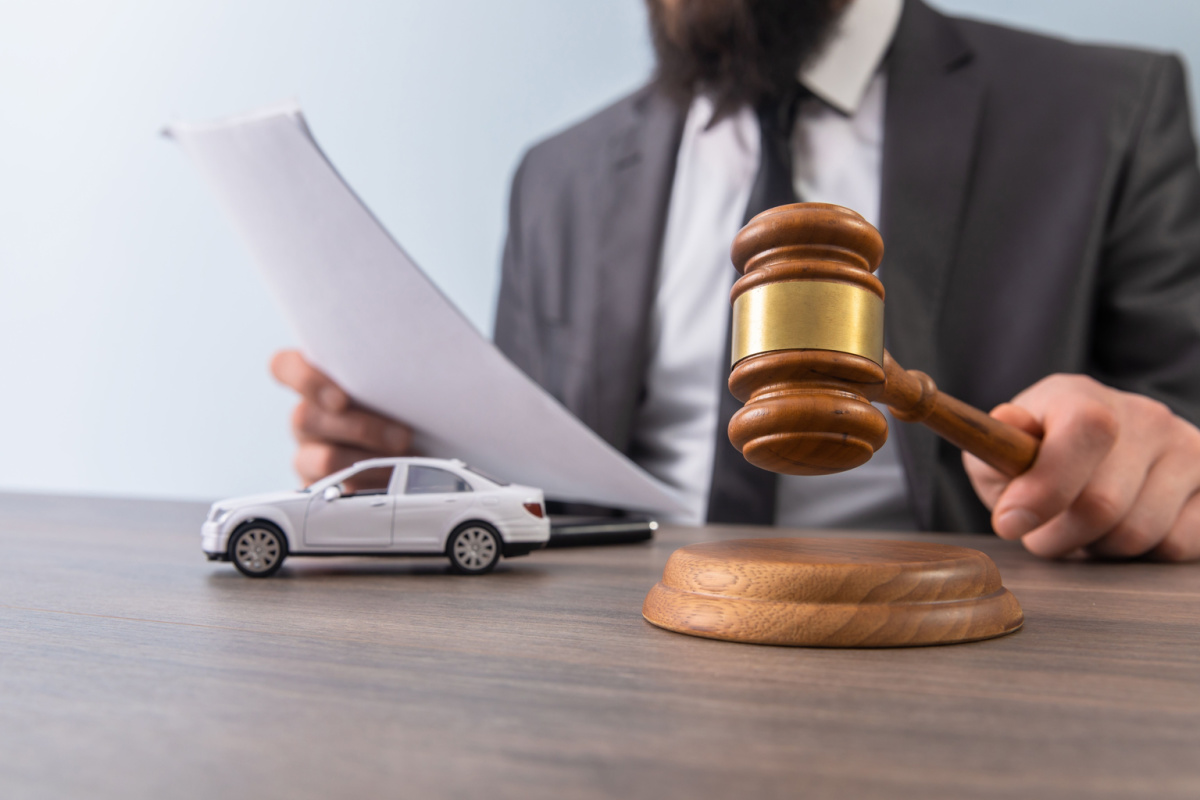
Partner at AKD Lawyers
Practice Areas: Personal Injury, Insurance Claims

If you’ve been in a car accident in New Orleans, you might be unsure what to do next. Between medical checkups, car repairs, and endless insurance calls, even simple steps can feel overwhelming. What makes it trickier is that Louisiana’s accident laws are different from most other states, especially when it comes to timelines and shared fault.
Many people make costly mistakes in those first few days accepting low settlements, admitting partial fault without realizing it, or missing key deadlines. Understanding how accident claims actually work in Louisiana helps you avoid those pitfalls and make confident decisions about what comes next.
This article breaks down what really happens after a crash, how Louisiana’s comparative fault and insurance laws shape your case, and the practical steps you can take to protect yourself during the recovery and claims process.
What Happens Immediately After a Car Accident in Louisiana
The moments after a collision can be overwhelming, but what you do right away can significantly affect your ability to recover damages. First, make sure everyone is safe and call 911 to report the crash. If possible, gather basic evidence like photos of the scene, vehicle positions, and license plate numbers.
Always request a copy of the official police report. It serves as key documentation during the claims process. Even if your injuries seem minor, visit a doctor immediately. Some injuries like whiplash or concussions appear later, and medical records help prove your case.
In Louisiana, documenting everything matters. Insurance adjusters rely heavily on police reports and medical records when deciding how much compensation to offer. Acting promptly ensures your rights are protected under state law.
Overview of Louisiana Car Accident Laws
Louisiana’s accident laws are designed to assign responsibility fairly, but they also limit how long you have to take action.
Louisiana Civil Code Article 3492: “Delictual actions are subject to a liberative prescription of one year.” This means most car accident claims must be filed within one year of the incident.
That short timeframe is known as the statute of limitations, and missing it usually means you lose your right to seek compensation.
Another important rule is comparative fault, which determines how damages are divided when more than one person is at fault.
Louisiana Civil Code Article 2323: “In any action for damages, the degree or percentage of fault of all persons causing or contributing to the injury shall be determined.”
For example, if you were found 20% at fault in a crash, you could still recover 80% of your damages. Understanding these laws helps you make informed decisions before filing a claim.
The Car Accident Claim Process Step-by-Step
Filing a car accident claim in Louisiana begins with notifying your insurance company and the at-fault driver’s insurer. Both will open an investigation to determine fault and damages.
Here’s how the process generally works:
- Initial claim filing: You’ll submit your report, photos, and any other relevant evidence.
- Insurance investigation: Adjusters review the accident report, medical bills, and statements.
- Evaluation of damages: Compensation is calculated for repairs, medical costs, and other losses.
- Negotiation or settlement: Insurers make offers based on their assessment, which you can accept or challenge.
Evidence is everything. Photos of the scene, medical treatment records, and repair estimates all strengthen your claim. If you delay treatment or miss documentation, insurers may question your injuries or reduce your payout.

How Insurance Companies Evaluate and Respond to Claims
Insurance companies play a major role in how much compensation you receive, but their priority is to limit payouts. They use strategies that can make even strong claims harder to prove.
Insurance companies in Louisiana must act in good faith under La. R.S. § 22:1973, but disputes often arise over claim valuation and timing.
Common tactics include delaying responses, offering quick settlements that undervalue your losses, or suggesting you were partially at fault to reduce payment. Knowing these tactics helps you stay prepared.
Adjusters usually rely on three main factors:
- Economic damages: Medical costs, repair bills, and lost income.
- Non-economic damages: Pain, suffering, and emotional distress.
- Fault distribution: Based on comparative negligence rules.
Being informed allows you to respond strategically and ensures that your compensation reflects your true losses, not just what the insurer wants to pay.
Key Factors That Influence Compensation
Several variables determine how much compensation a person receives after a crash in Louisiana. The strength of your evidence and the accuracy of your medical documentation play a big role.
Non-economic losses such as emotional distress or reduced quality of life are harder to quantify but still matter. The insurer also considers whether there were pre-existing injuries or shared fault.
According to Louisiana crash data from the Highway Safety Research Group, driver distraction and speeding remain among the top causes of urban collisions.
Your claim’s value often depends on how well you can prove negligence and the impact of the accident on your daily life.
Comparison: Filing a Claim with and Without Legal Guidance
|
Step |
Without Legal Understanding |
With Legal Understanding |
| Evidence Collection | Often incomplete; may miss key documentation | Thorough, timely documentation preserved |
| Communication with Insurer | Higher chance of undervalued offers | Better negotiation leverage based on facts |
| Understanding of Fault | May accept partial blame incorrectly | Fault analyzed under comparative fault rules |
| Timelines | Risk of missing filing deadlines | Deadlines tracked according to Louisiana law |
Even if you choose to handle your claim on your own, knowing the process and your rights gives you a major advantage.
Why Understanding the Legal Process Matters
Navigating an insurance claim may seem simple at first, but Louisiana’s laws and insurer procedures can be complicated. A single missed detail like failing to document an injury or misreporting fault can lower your compensation significantly.
Knowing your rights, key deadlines, and legal responsibilities protects you from common mistakes. Whether you manage the claim yourself or seek guidance, a clear understanding of the process helps you stay in control and ensures you’re treated fairly under Louisiana law.
Frequently Asked Questions
How long do I have to file a car accident claim in Louisiana?
You have one year from the date of the accident to file a personal injury or property damage claim.
What does comparative fault mean in Louisiana?
It means each driver’s fault percentage affects compensation. You can still recover even if you were mostly at fault.
What evidence strengthens a car accident claim?
Police reports, medical records, repair estimates, and witness statements provide strong documentation for your claim.
How do insurance companies calculate compensation?
They review expenses, lost income, and pain and suffering to determine total compensation value.
Do I need to accept the first settlement offer?
No. Initial offers are often lower than fair value; you can negotiate for a higher amount.
What happens if both drivers share blame?
Each driver’s fault percentage determines payout reduction based on comparative negligence rules.
Conclusion
Understanding how Louisiana car accident claims work helps you make better choices, avoid costly errors, and secure fair compensation. From deadlines to comparative fault rules, every detail matters in determining the outcome of your claim.
If you’ve been injured or are unsure about your next step, Alvendia, Kelly & Demarest Law Firm can guide you through the process. Their experienced team has helped New Orleans residents handle insurance claims efficiently and protect their rights.
Contact Alvendia, Kelly & Demarest Law Firm today for a free consultation and learn how a knowledgeable New Orleans car accident lawyer can help you deal with the process confidently.
Categories

In 2003, after being dissatisfied with the quality of legal care for victims of car accidents, Roderick ‘Rico’ Alvendia sought to establish a new firm focused on providing high-quality legal services to aid injured victims and their families. J. Bart Kelly, sharing Rico’s passion for upholding justice, joined the firm later that year, and established a partnership.







